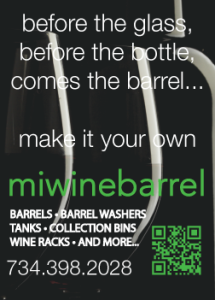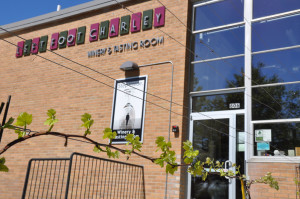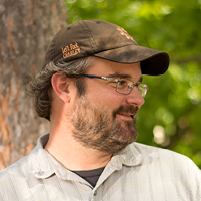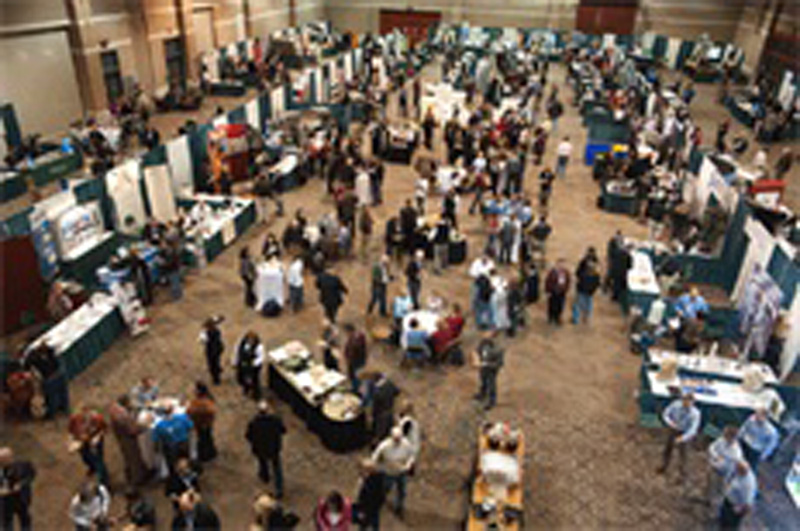Left Foot Charley is On the Right Path
 Left Foot Charley is a quirky name for a winery that produces quality wines from vineyards located in Northwest Michigan. Bryan Ulbrich, the self-titled ‘winery Sherpa” of Left Foot Charley has been making wine in Michigan for 13 years.
Left Foot Charley is a quirky name for a winery that produces quality wines from vineyards located in Northwest Michigan. Bryan Ulbrich, the self-titled ‘winery Sherpa” of Left Foot Charley has been making wine in Michigan for 13 years.
Bryan has ‘made his chops” in the wine business. Over his career, he has been the winemaker at Peninsula Cellars, an apprentice in Europe and even did a stint with the O’Keefe family at Chateau Grand Traverse. Six years ago, he and his bride Jennifer founded Left Foot Charley within the city limits of Traverse City.
This urban winery sources grapes from growers throughout Northern Michigan. Left Foot Charley owns no vineyards by choice. ‘My growers are very particular people. They’re intensely focused on their grapes. By leaving the farming to them, I can focus all my attention on the winemaking”, says Bryan. ‘We’re partners in the process. Part of my job is to put their pride and joy in the bottle. They know their terroir better than anyone else. We work together to produce the finest wine we can.”
As you know, quality begins in the vineyard. Terroir, that French term bandied about in the wine business, has no direct translation. It’s a sense of place, the ‘somewhereness” of the grapes in the vineyard.
Terroir is paramount to winemaker Bryan Ulbrich of Left Foot Charley. While he makes a variety of varietal wines, including Pinot Blanc, Pinot Gris (aka Grigio), Sauvignon Blanc, Blaufrankish, and Cabernet Franc, Bryan’s passion is Riesling. The Riesling grape reflects terroir as much or more than any other grape, save Pinot Noir. Left Foot Charley makes several Rieslings. One of them, the 2011 Left Foot Charley Seventh Hill Farm Old Mission Peninsula Riesling, won the prestigious 2012 Jefferson Cup Invitational Wine Competition for white vinifera wine.
This wine is sourced from vineyards named Seventh Hill Farms, owned by Tom Scheuerman, one of a small group of farmers who grow grapes for Left Foot Charley. Planted in 1999, this five acre plot is at the northern end of Old Mission Peninsula. The vineyard faces south for maximum exposure to the sun.
Sandy loam soil is another factor in the terroir of this vineyard. Winds from West Grand Traverse Bay sweep over this elevated site. The ‘lake effect”, another part of this particular terroir, moderates temperature spikes, brings additional rain, and helps insulate the vines during the cold winter months.
Seventh Hill Farm is made up of two vineyard blocks. They were harvested separately and fermented separately. To create this wine, Bryan blended the fermented wines from the two different tanks back together for the final product.
Left Foot Charley also produces the 2011 Riesling Dry. Three vineyards from different areas of Northern Michigan wine country supply the grapes for this classic version of one of the most food-friendly varietals made today. Each site contributes its own unique characteristics to the finished wine.
For those seeking a sweeter version of Riesling, the Missing Spire 2012 is also available. Sourced from Antrim County, Grand Traverse County and Old Mission Peninsula, this lower alcohol wine (10.4%) has the potential to age ever so gracefully over the next few years. The name of the wine comes from the missing center spire of the former asylum where the winery is located. According to Bryan, ‘the spire was torn down in the 1960s as part of a fire deterring mentality. It was the most ornate section of the building and the hole where it once stood is still there. This wine is our tribute to the heritage of our location. ”
Bryan believes viticulture in Northern Michigan is progressing at a good, steady pace. New vineyards and wineries are ‘focused on quality, which benefits us and of course, consumers. Friendly and healthy competition is helping all of us to improve. We’re all expanding our horizons while focusing on what experience has taught us. ”
Various versions of Pinot Blanc wines are on the upswing. This Alsatian grape is being made into ‘a brighter, fresher, fruitier style than the deeper, earthier version” from its homeland, according to Bryan. He has increased production of Pinot Blanc. Chenin Blanc is on the rise as well as Sauvignon Blanc, both very terroir expositive varietals. That darling of sommeliers, Grüner Veltliner, is being made by both Chateau Grand Traverse and Good Harbor, two other Northern Michigan wineries.
 Left Foot Charley also makes sparkling wine and two white blends mischievously named Stumble and Murmur. Cadia, a red blend of Cabernet Franc and Merlot is another offering from this urban winery.
Left Foot Charley also makes sparkling wine and two white blends mischievously named Stumble and Murmur. Cadia, a red blend of Cabernet Franc and Merlot is another offering from this urban winery.
If all of above the wines don’t quench your thirst, hard apple cider is made in small quantities. Due to the tiny 2012 apple harvest, supplies are limited.
As Bryan Ulbrich succinctly states ‘wine is long term, not short term. Those who are looking for a quick return on their investment are better off in another type of business. Soon it will be up to the next generation of winemakers to chart the course for this region. We know they will build on our foundation.”
Michigan wines continue to improve as growers and winemakers accelerate their learning curve on what grapes are best suited for the terroir of the Wolverine State.
Michael Schafer Esq., The Wine Counselor®, is a wine educator, speaker, Sommelier, C.S.W., writer and consultant who entertains while educating. His approach to wine is reflected in his trademark phrase, ‘I taste bad wine so you don’t have to”®
For more information see: www.winecounselor.net





where can I purchase Left Foot Charley Dry Riesling in the Milwaukee Wisconsin area?